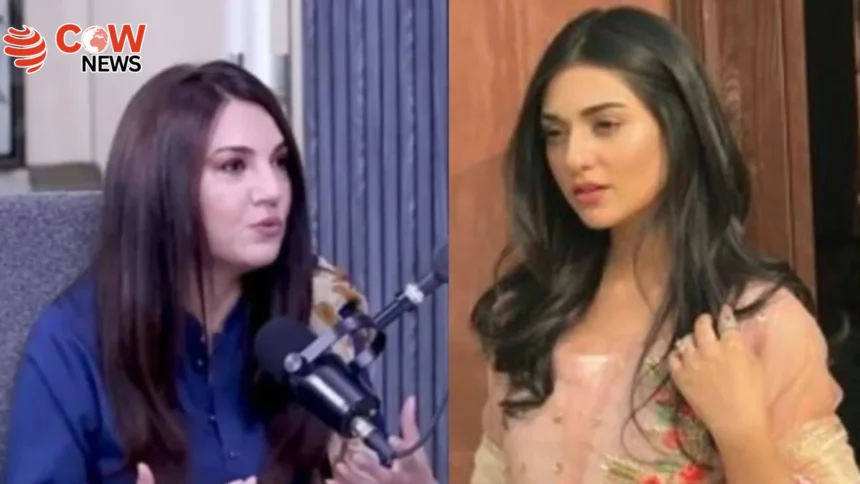Islamabad( The COW News Digital )Reham Khan has openly criticized Pakistani actress Sarah Khan for her recent anti-feminist remarks that sparked widespread debate on social media.
In a strong response, journalist and political commentator Reham Khan said Sarah Khan might be overlooking the very movement that made it possible for women like her to thrive in the entertainment industry.
“Sarah is perhaps forgetting that it is because of feminism that women can freely work as actors today. Feminists have long fought for the rights and freedoms that many take for granted,” Reham stated in a social media post that gained traction shortly after being published.
She further emphasized that even if someone disagrees with feminism, it is inappropriate to make public statements against it, especially when such views could undermine the ongoing struggle for women’s rights in conservative societies.
Reham Khan urged influential figures to use their platforms more responsibly. “Those who enjoy privilege should use their voice for the underprivileged, not against them,” she added.
The backlash began after Sarah Khan, speaking at a public event a few days ago, commented that she doesn’t consider herself a strong feminist. She stated that she prefers to let men handle responsibilities outside the home while she remains comfortable managing domestic affairs.
Her comments quickly went viral, dividing public opinion. Supporters lauded her for expressing traditional values, while critics accused her of undermining the decades-long struggle of women fighting for equality and freedom of choice.
Also read: 78 Killed in Ongoing Israeli Strikes on Gaza Aid Sites
This debate highlights the ongoing cultural divide in Pakistani society regarding gender roles, feminism, and the responsibilities of public figures.
Reham’s remarks have further fueled the discussion, pushing more celebrities and activists to clarify their stance on feminism. The exchange between the two prominent women illustrates how feminism remains a deeply polarizing issue in South Asia, especially in the digital age, where opinions quickly become national conversations.
As the debate continues, it reflects a larger question: can personal choices coexist with public responsibility, especially when made by influential women in media and entertainment?







